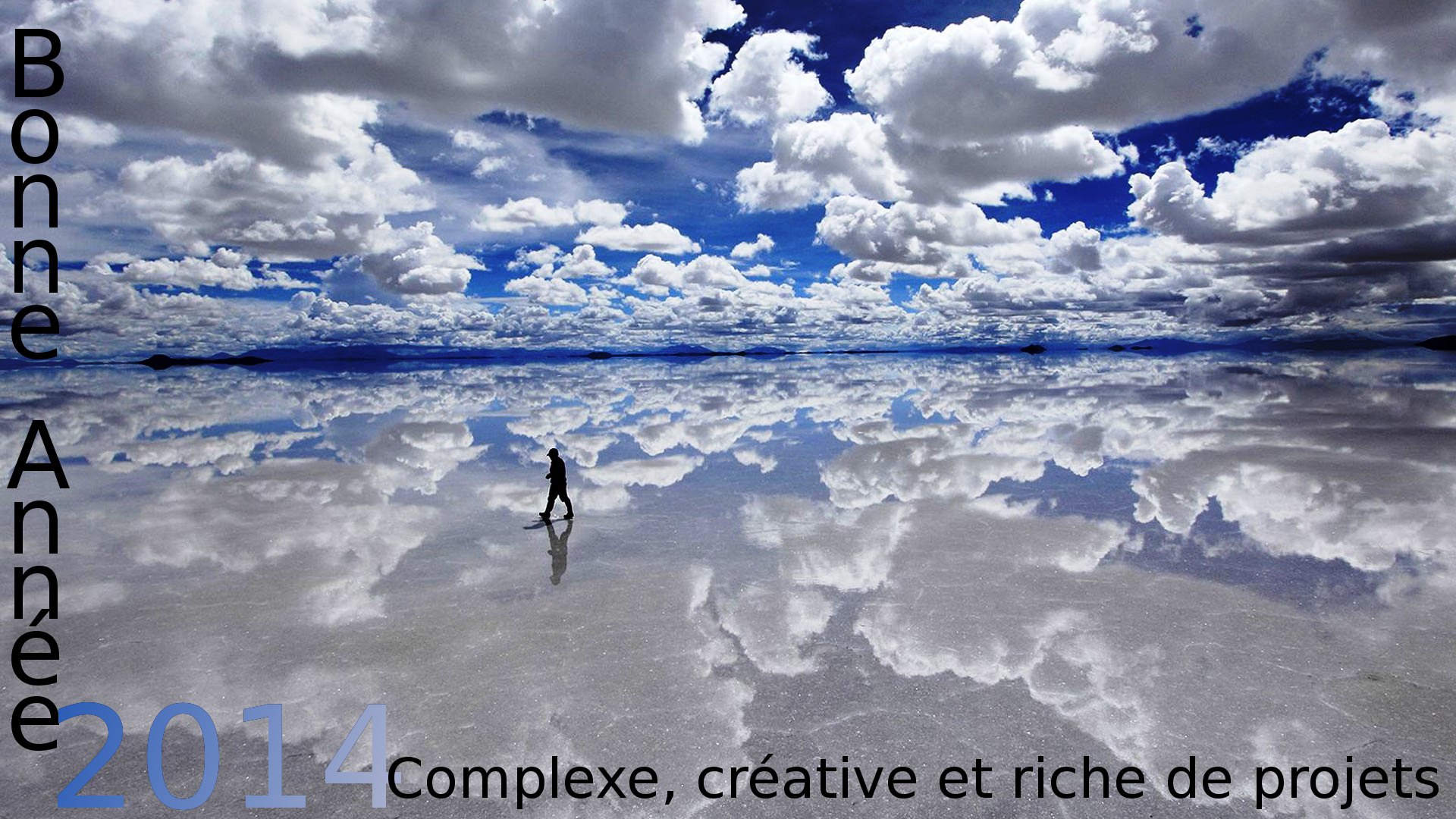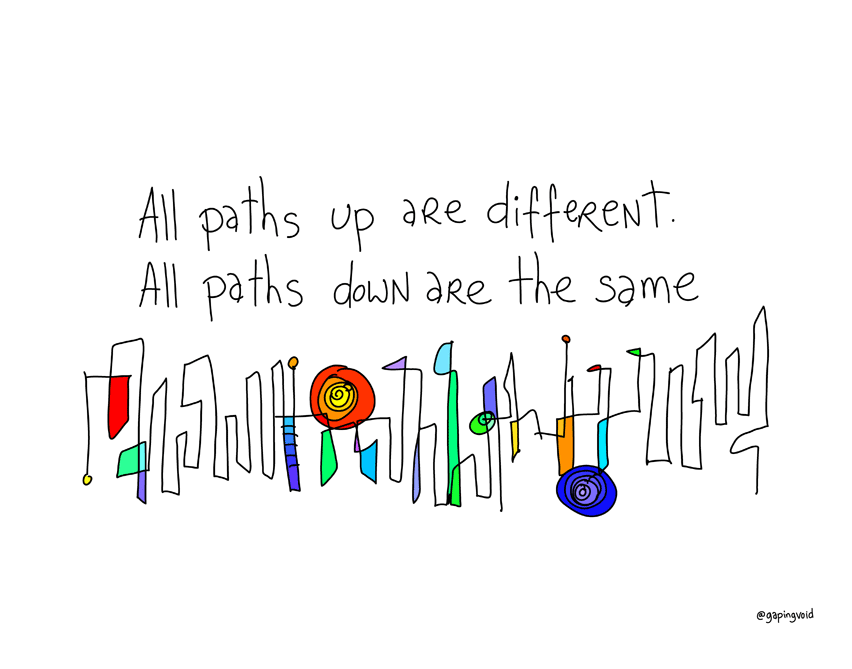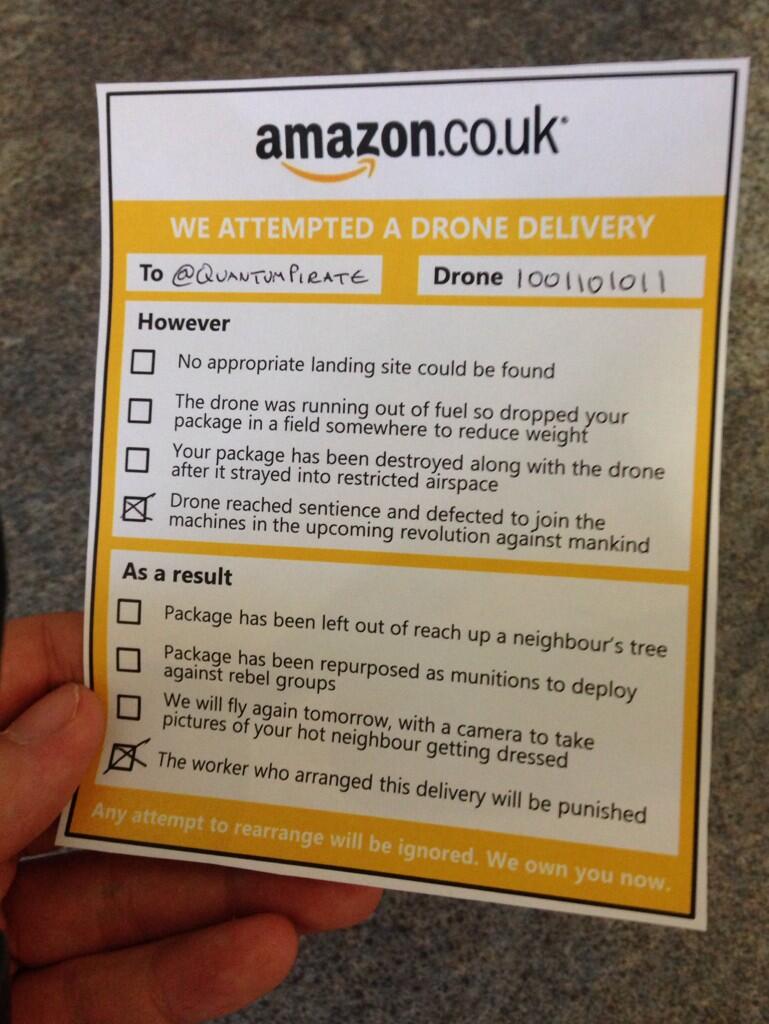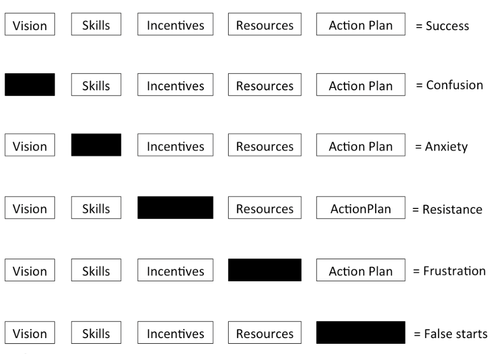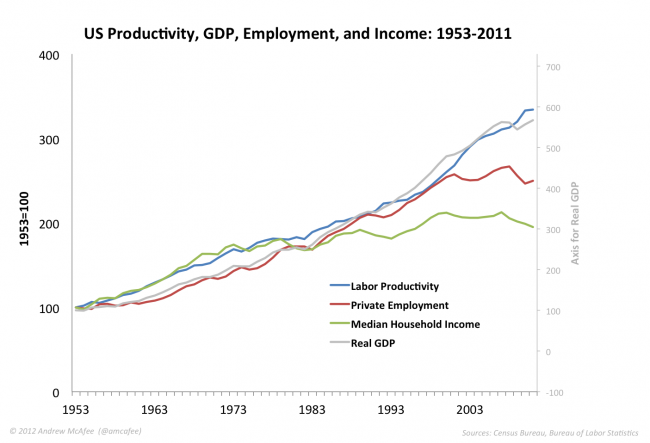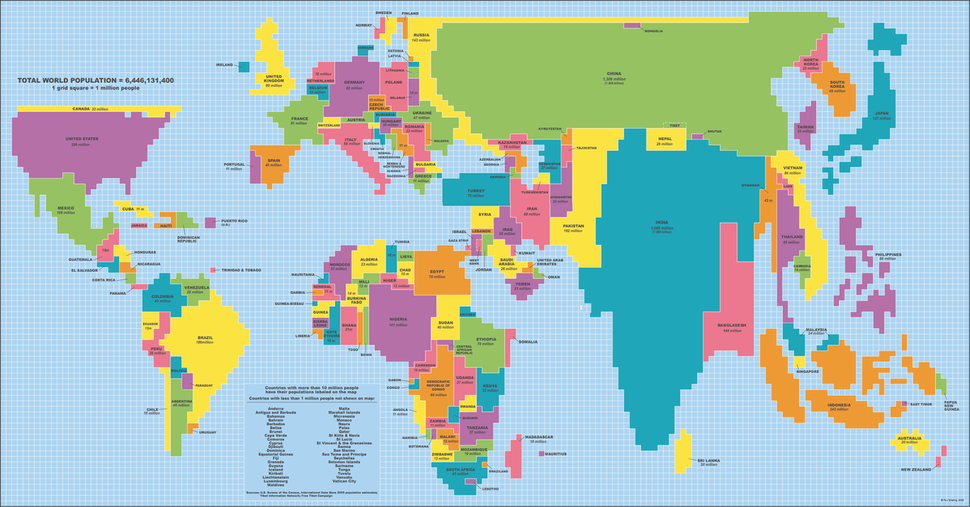Complexity Awareness Equation
Wednesday, January 8th, 2014We are living in a complex society, with complex companies addressing complex issues. In my opinion, the most sound answer to this challenge includes switching from hierarchical to networked organizations and opening this network to the edges.
But… such dramatic organization changes can only be envisioned when two conditions are validated:
- there is some awareness about complexity: it can be detected and assessed,
- there is a understandable threat to keeping the usual pace.
My take on this is in the form of the "Complexity Awareness Equation":
Complexity ⟹
Grossman’s Law + Duning-Kruger Effect ➔ Dumbest lead
Let’s explain…
Grossman’s Law states that "Complex problems have simple, easy to understand wrong answers." It is the shortest way to express the malediction that organizations face when in complexity denial. It both reads "simple and easy to understand solutions will be (endlessly) tested and will (endlessly) fail" and "the more it will fail, the more a disoriented hierarchy, confusing complexity with complication, will ask for simple and easy to understand solutions."
According to Wikipedia, the Dunning–Kruger effect is a cognitive bias in which unskilled individuals suffer from illusory superiority. When complex issues are addressed using regular solutions, repeated failures result in smarter people becoming unsure of their skills while the dumber suffer from the illusory certitude that the simple solutions, the ones they can understand, are fit.
As Bertrand Russel stated The whole problem with the world is that fools and fanatics are always so certain of themselves, and wise people so full of doubts. It might not apply to "the whole problem with the world" but it is at least archetypal to complex issues.
Applying Grossman’s law, we now know that complex issues will lead to both repeated failures of simple solutions and the demand of ever simple solutions from a disoriented hierarchy. We also know that the Dunning-Kruger Effect will have unskilled ones feel superior while skilled ones are "lost in complication". What follows is that the unskilled will take the lead.
The side effect is well known, and may probably represent the hardest issue our societies currently face. Unskilled take the lead. Their solutions keep failing and the only reason they can think of is that they were not granted enough control, or budget, or both. Accordingly they ask for more power and are usually given what they want because the more was already invested in crappy solutions, the more they become artificially valued.
This equation was elaborated from an historical study of Public Health Information Systems, an archetypal environment were many countries spend considerable amount of money trying in vain to build Patient Health Records. I latter discovered that it helps understand much larger systems, for example the Bush administration foreign policy or US secret services building PRISM as an answer to their failure to prevent 9/11.


